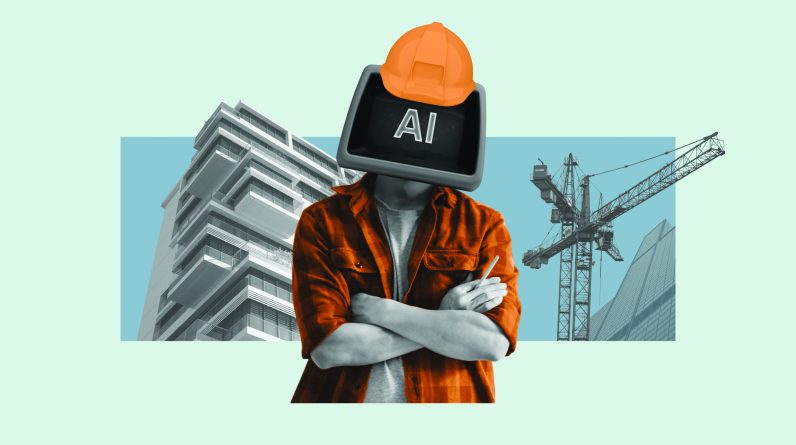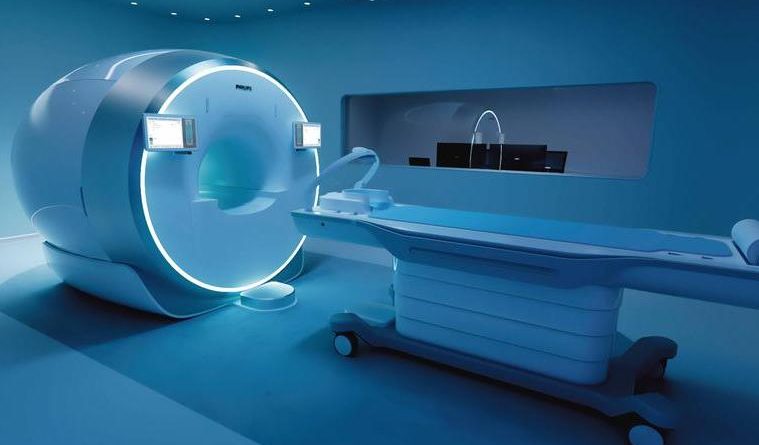
Listen to this article
Artificial intelligence (AI) is rapidly reshaping industries, including construction. Construction was once a labor-intensive sector dependent on manual work and complex coordination, but is now undergoing a significant transformation with the advent of AI technologies. AI’s impact on construction is undeniable as seen by improving safety protocols, optimizing designs and streamlining project management.
What are we seeing as current trends and what do we envision as future predictions of trends for AI in the construction industry?
Current Trends
Project Management Automation
Project management is a critical component of construction, involving tasks like scheduling, budgeting, and communication. AI tools have already started automating many of these processes, reducing human error and saving time. Predictive analytics powered by AI can forecast delays, cost overruns, and other risks. Platforms like Procore and BuilderTrend enable real-time project tracking, while AI algorithms help allocate resources efficiently, ensuring schedules stay on track.
Design and planning optimization
AI is revolutionizing construction designs. Generative design software uses AI to generate multiple design alternatives based on parameters like energy efficiency, cost, and structural integrity. These algorithms help architects and engineers identify the most cost-effective and sustainable solutions. Material costs are reduced and more environmentally friendly building practices are encouraged as a result of employing these algorithms.
Autonomous construction equipment
Autonomous machinery is becoming more common on construction sites. AI-powered equipment such as bulldozers, cranes, and excavators can operate with minimal human intervention. These machines are equipped with sensors, cameras, and AI algorithms, allowing them to navigate construction sites safely and efficiently. Autonomous machinery works around the clock, reducing labor costs and improving productivity.
AI in quality control and inspections
Quality control is essential to ensure that buildings are safe and structurally sound. AI is increasingly used to automate inspections and identifying issues early in the process. Drones with AI-powered cameras perform aerial surveys, delivering real-time data for quality assurance. AI’s image recognition software can detect cracks, defects, and structural issues that might otherwise go unnoticed, improving inspection accuracy and speed.
Safety enhancements
Construction sites are hazardous environments, which often lead to accidents and injuries. AI is helping to mitigate these risks with innovations like safety monitoring systems. Cameras and sensors equipped with AI analyze live video feeds to detect unsafe behaviors, such as workers not wearing protective gear or misusing machinery, and then alerting managers in real time. Additionally, AI-driven predictive tools can assess environmental conditions and warn workers of potential hazards like bad weather or structural instability.
Future Predictions
Fully autonomous construction sites
Construction sites are envisioned as becoming more fully autonomous. AI will manage much of the process, from planning to execution. Robots, drones, and autonomous machinery will work together to carry out tasks like bricklaying, welding, and structural assembly, all with minimal human input. This shift has a good potential to reduce labor costs, enhance safety, and improve efficiency. Additionally, AI will be able to manage the entire project lifecycle, adjusting resources and timelines to optimize results.
AI and Building Information Modeling (BIM)
Building Information Modeling (BIM) has become essential for modern construction, offering detailed digital models of physical structures. AI will enhance BIM in the future, by analyzing large amounts of data to improve decision-making and design processes. AI could predict how a building will perform over time, by taking into account wear and tear, environmental factors, and changing occupancy needs, allowing for more effective maintenance and cost management.
Sustainability and AI-driven green construction
Sustainability has become a growing focus in construction as the industry aims to minimize its environmental impact. AI can play a pivotal role in green construction by optimizing material use, reducing waste, and improving energy efficiency. It can also assist in creating sustainable building practices, evaluating the environmental impact of materials, and reducing the carbon footprint during construction. AI-powered systems in buildings could monitor and optimize energy consumption in the future, making structures more energy-efficient and self-sustaining.
AI-powered workforce management
The role of human workers will evolve as automation increases. AI will optimize workforce management by assigning tasks based on workers’ skills and experience. AI could also predict labor shortages, suggesting staffing solutions or increased automation in specific areas. This change will require reskilling the workforce, but it also promises new, high-tech job opportunities in construction management, robotics, and AI programming.
Predictive maintenance for infrastructure
AI will also revolutionize the maintenance of existing infrastructure. Future AI systems could monitor infrastructure like bridges and roads in real time, analyzing sensor data and maintenance records to predict when repairs are needed. This predictive approach will not only cut costs but also extend the life of vital infrastructure, helping to ensure cities may remain safe and functional.
Final Thoughts
AI is poised to revolutionize the construction industry, from automating project management to enhancing safety protocols and promoting sustainability. The future may likely see fully autonomous construction sites, AI-driven building designs, and predictive maintenance systems. These advancements present incredible opportunities and success will depend on how well these technologies are integrated with existing practices. Embracing AI will reshape the industry, but human expertise and oversight will remain essential.
“As AI becomes the backbone of construction innovation, the job site of the future will be defined not just by machinery and manpower, but by intelligence that predicts, adapts, and optimizes every layer of the building process.”
— Dr. Elena Martinez, AI and Construction Technology Researcher
“Things are doubling every few weeks… In just the four-year period, it’s been unbelievable to watch the advance of AI… Generative AI can solve 75% of construction profit fade in the near future.”
— Patrick Murphy, Founder and CEO of Togal.AI
Glenn Ebersole is a registered professional engineer and Business Development Manager at PM Design Group, a nationally licensed A&E firm in West Chester, PA, with 14 offices across the U.S. He can be contacted at [email protected] or 717-575-8572.




